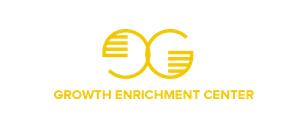
Unearth the hidden resilience within you by acknowledging stress impact and signs. Develop a personalized stress management plan with deep breathing and mindfulness. Track triggers through a stress journal and embrace triggers as pathways to building resilience. View stress as a catalyst for growth and use positive affirmations daily. Engage in mindfulness practices like meditation and deep breathing for mental well-being. Reflect daily through journaling for self-discovery and growth. Harness the power of affirmations, focus on emotional intelligence, and practice self-regulation for resilience. You have the potential to thrive by embracing challenges and nurturing your inner strength.
Understanding Stress and Resilience
Understanding stress and resilience begins with acknowledging the profound impact these experiences have on your overall well-being. Stress is a natural part of life, but recognizing how you respond to it can make a significant difference. In this practical guide, let's explore ways to navigate stress and cultivate resilience effectively.
To start, it's crucial to recognize the signs of stress in your life. By paying attention to your body and emotions, you can pinpoint what triggers your stress response. This self-awareness forms the foundation for developing a personalized stress management plan tailored to your needs.
Practicing stress-relief techniques such as deep breathing, mindfulness, and physical exercise can help alleviate stress in the moment. Additionally, setting realistic goals and incorporating positive affirmations into your daily routine can transform stress into growth opportunities.
Identifying Personal Triggers
Observing your reactions and emotions through a stress journal can reveal valuable insights into your unique personal triggers. Keeping a journal allows you to track patterns, identify specific situations, people, or environments that cause stress. By jotting down your thoughts and feelings, you can start recognizing the triggers that set off your stress responses.
Taking time for trigger awareness meditation can further aid you in understanding the key causes of these triggers. Reflect on your journal entries during these moments of mindfulness to explore deeper into the reasons behind your stress reactions. Remember, personal triggers are as individual as you are, and acknowledging them is the first step towards effective stress management and resilience-building.
Be compassionate with yourself as you navigate this process. Recognizing and understanding your personal triggers is an essential part of your growth journey. Embrace this opportunity to learn more about yourself and develop strategies to transform stress triggers into avenues for personal development.
Transforming Stress Into Growth

You have the remarkable ability to turn stress into a powerful force for growth and personal development. Embrace the challenges that come your way as stepping stones towards resilience and inner strength.
Stress as Catalyst
When faced with stress, remember that it can be a powerful catalyst for personal growth and transformation. Stress has the transformative power to push you beyond your comfort zone, prompting you to set goals that foster development.
Embracing daily positive affirmations nurtures a growth mindset, turning stress into opportunities for learning and growth. By reshaping your relationship with stress, you can use it as a tool for personal development and self-improvement.
Recognize your stress triggers as stepping stones for personal growth, viewing stress as a potential avenue for learning and development. Harness the energy of stress to propel yourself forward on your personal growth journey. Remember, within stress lies the hidden potential for growth and resilience.
Resilience Through Challenges
In the face of challenges, embracing stress as a catalyst for growth can pave the way for resilience and personal development. When you choose to embrace challenges, you're choosing to step into your potential, to transform stress into opportunities for learning and self-improvement.
By setting achievable goals and fostering a growth mindset, you can reshape your relationship with stress, viewing it not as a hindrance but as a pathway to resilience. Utilize techniques such as stress journaling and trigger awareness meditation to identify and manage stress triggers effectively.
Daily Reflection Journaling
Begin on a journey of self-discovery and growth through the practice of daily reflection journaling. Keeping a journal to record your thoughts, emotions, and experiences can be a powerful tool in understanding yourself better. By taking the time each day to reflect on your entries, you start to see patterns, triggers, and how you react to different stressors in your life. This awareness is key in identifying areas for personal growth and resilience building.
Through daily reflection journaling, you can gain valuable insights into your own journey. By tracking your progress, you can celebrate your successes, no matter how small, and learn from the challenges you face. This practice not only fosters self-awareness but also encourages mindfulness in your daily life. Embracing this habit can lead to a deeper understanding of yourself and help you navigate life's ups and downs with more resilience and grace. Start today, and watch as your inner strength and resilience grow with each journal entry.
Embracing Mindfulness Practices

Set out on a journey of self-discovery and inner strength by embracing mindfulness practices that foster resilience and enhance your well-being. Meditation is a powerful tool that can unleash your life. Through the practice of mindfulness meditation, you can cultivate a deep sense of awareness and presence in the current moment. Techniques like deep breathing, body scan, and mindful walking can help you develop mindfulness, reducing stress and enhancing self-awareness.
Scientific research has shown that mindfulness meditation improves mental well-being, cognitive function, and emotional regulation. Regular practice can even rewire your brain, leading to increased focus, emotional stability, and overall resilience. By incorporating mindfulness into your daily routines, you can promote a sense of calm, clarity, and inner peace. This enhanced state of being will empower you to navigate life's challenges with grace and effectiveness. Embrace mindfulness practices today to unleash hidden reservoirs of resilience within yourself.
Cultivating Self-Awareness
As you journey towards cultivating self-awareness, remember that understanding your thoughts, emotions, and behaviors is a powerful tool for personal growth.
By recognizing your strengths and weaknesses, you empower yourself to make conscious choices aligned with your values and beliefs.
Through introspection and mindfulness practices, you pave the way for enhanced resilience and a deeper connection to your true self.
Mindfulness for Resilience
Cultivating self-awareness through mindfulness empowers you to observe your thoughts and emotions without becoming entangled in them. By paying attention to the present moment without judgment, you can increase your self-awareness and emotional regulation.
Mindfulness techniques like deep breathing and body scans reduce stress and anxiety, enhancing resilience. Through regular practice, you can make better decisions, improve focus, and nurture inner peace.
Emotions and Reactions
Recognizing and understanding your emotions and reactions is pivotal to cultivating self-awareness in various situations. By taking the time to recognize how your emotions manifest physically, mentally, and behaviorally in response to different triggers, you can gain valuable insights into your thought processes. This practice allows you to identify patterns of emotional responses, empowering you to navigate challenging situations with greater clarity.
Mindfulness and reflection play vital roles in enhancing self-awareness by directing your attention to present moment experiences. Through self-awareness, you can effectively regulate your emotions and make conscious choices, leading to greater resilience in the face of adversity.
Embrace the journey of self-discovery and empower yourself to thrive amidst life's uncertainties.
Reflective Self-Assessment
In your journey towards self-awareness, exploring your thoughts, emotions, and behaviors through reflective self-assessment is a powerful tool for personal growth and resilience. By delving into your inner world, you can reveal hidden strengths, understand your values, and identify areas for improvement.
Reflective self-assessment enables you to learn from past experiences, recognize patterns, and make informed decisions that align with your aspirations. Through this introspective process, you can enhance your emotional intelligence, refine your communication skills, and initiate positive transformations in various aspects of your life.
Harnessing Positive Affirmations
Harness the transformative power of positive affirmations to reshape your mindset and cultivate unwavering self-belief. When you embrace challenges with a positive attitude, affirmations become your tools for growth. By repeating affirmations such as 'I am capable of overcoming obstacles' or 'I believe in my ability to succeed,' you can reprogram your mind to focus on possibilities rather than limitations. Consistent use of positive affirmations boosts self-confidence and self-esteem, empowering you to navigate life's ups and downs with resilience.
Incorporating affirmations into your daily routine is key to fostering a growth mindset. Start your day by affirming your strengths and capabilities, setting the tone for a positive outlook. Throughout the day, use affirmations to counter negative thoughts and redirect your focus towards optimism. Research supports the benefits of positive affirmations in improving overall well-being and reducing stress levels. By harnessing the power of affirmations, you can cultivate a mindset that's resilient, optimistic, and full of self-belief.
Developing Psychological Skills

As you continue on your journey of personal growth, honing your psychological skills becomes an essential step towards mastering your inner world and steering life's challenges with resilience and clarity. Developing these skills isn't just about understanding your emotions but also about effectively managing them to build resilience in the face of adversity.
Here are three key practices to help you enhance your psychological skills and cultivate resilience:
- Emotional Intelligence: Work on recognizing and understanding your emotions, as well as being able to empathize with others. Emotional intelligence is a cornerstone of resilience, allowing you to navigate difficult situations with grace and composure.
- Self-Regulation: Practice self-control and the ability to manage impulses. By regulating your emotions and reactions, you can respond thoughtfully rather than react impulsively, which is fundamental to building resilience.
- Self-Awareness: Increase your self-awareness through introspection and reflection. Knowing your strengths, weaknesses, and triggers enables you to make informed decisions and develop strategies for coping with challenges effectively.
Mastering Stress Management
Mindfully incorporating stress management techniques into your daily routine can empower you to navigate challenges with resilience and inner peace. When stress strikes, remember the power of mindful breathing exercises. These simple practices can anchor you in the present moment, promoting relaxation and reducing anxiety.
Consider keeping a stress journal to pinpoint your triggers and better understand your emotional responses. By embracing challenges and setting achievable goals, you can turn stressful situations into opportunities for personal growth. Start your day with a resilience routine that includes affirmations and mindfulness practices. This routine can lay a strong foundation for facing uncertainties with a clear mind and positive outlook.
Additionally, integrating mindfulness into your daily life through activities like mindful eating and nature walks can greatly improve your overall well-being. Stress is a part of life, but with the right tools and mindset, you can master stress management and thrive amidst life's challenges.
Fostering Personal Growth

You hold the power to transform and grow in ways you never thought possible. By setting clear goals, embracing challenges, and shifting your mindset, you open the door to personal growth.
Setting Growth Goals
Fostering personal growth through setting intentional and measurable growth goals is the key to revealing hidden resilience within yourself. By embracing challenges and committing to personal development, you pave the way for a more resilient and empowered version of yourself.
Here are three essential tips to guide you in setting growth goals:
- Be Specific: Clearly define what you want to achieve and break down your goals into actionable steps.
- Stay Accountable: Hold yourself responsible for your progress and seek support when needed to stay on track.
- Celebrate Progress: Acknowledge your achievements along the way, no matter how small, to stay motivated and inspired to keep pushing forward.
Embracing Challenges
Pushing yourself beyond your comfort zone by embracing challenges is crucial to fostering personal growth and resilience within you. When you face challenges head-on, you not only build resilience but also strengthen your problem-solving skills.
It's imperative to learn to recognize that each obstacle presents an opportunity for learning, adaptation, and growth. By embracing challenges as stepping stones to growth, you shift your perspective towards positive outcomes.
As you overcome these challenges, you'll notice an increase in self-confidence and a deep sense of accomplishment. Remember, every challenge you encounter is a chance for you to grow stronger, more resilient, and more capable of reaching your full potential.
Cultivating Mindset Shifts
In cultivating mindset shifts for personal growth, embracing challenges as opportunities for development and learning becomes a transformative journey towards resilience and continuous improvement. When you choose to view challenges as stepping stones to personal growth, you open yourself up to a world of possibilities and self-discovery.
Here are three key ways to foster this mindset shift:
- Embrace a Positive Outlook: Approach challenges with a positive mindset, seeing them as opportunities for growth rather than obstacles.
- Learn from Setbacks: Use setbacks as valuable lessons that contribute to your personal development and resilience.
- Seek Growth in Every Challenge: Look for ways to learn and improve in every situation, no matter how difficult it may seem.
Frequently Asked Questions
What Are the 5 C's of Resilience?
You'll find the 5 C's of resilience are:
- Competence means having the skills to tackle challenges.
- Confidence is believing in yourself.
- Connection is all about building strong relationships.
- Character is having strong values to guide you.
- Contribution involves giving back and making a positive impact.
What Are the 7 C's of Resilience Theory?
You've asked about the 7 C's of resilience theory. These include competence, confidence, connection, character, contribution, coping, and control.
Did you know that studies show that individuals who possess these qualities are better equipped to navigate life's challenges? By developing these traits, you can't only overcome obstacles but also thrive in the face of adversity.
Embrace these pillars of resilience and watch yourself grow stronger with each hurdle you conquer.
What Are the 7 C's to Build Resilience?
You can build resilience by focusing on:
- Control: Take charge of what you can control.
- Commitment: Stay committed to your goals.
- Challenge: Embrace challenges.
- Communication: Communicate effectively.
- Community: Seek support from your community.
- Coping: Develop coping strategies.
- Confidence: Boost your confidence.
Strengthening these seven components will help you navigate through tough times and emerge stronger than before.
Embrace these qualities to cultivate your resilience and face any adversity with courage.
What Are the 5 Pillars of Resilience?
You build resilience with five pillars: self-awareness, mindfulness, self-care, positive relationships, and purpose. Each pillar supports you like a sturdy foundation during life's storms.
Understand your emotions, be present and non-judgmental, prioritize self-care, nurture positive connections, and find your why.
Embrace these pillars, for they'll guide you through challenges and empower you to rise stronger from adversity. You've got this!
Conclusion
You've set out on a journey to uncover your hidden resilience and transform stress into growth. Remember, studies show that resilient individuals are 50% less likely to experience negative health outcomes.
Embrace daily reflection, mindfulness, and positive affirmations to cultivate your inner strength. You have the power to navigate life's challenges with grace and emerge stronger than before.
Keep nurturing your resilience and watch yourself blossom into a more resilient, empowered version of yourself. You've got this!

